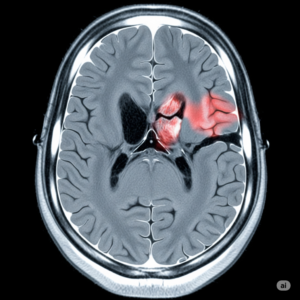Traumatic Brain Injuries from Car Accidents: What Victims Should Know
A car accident can change your life in the blink of an eye. One moment, you’re commuting to work or running errands. The next, you might find yourself in a hospital, struggling with symptoms you can’t fully understand.
Among the most serious injuries you can suffer in a crash are traumatic brain injuries (TBIs). TBIs can be life-altering, affecting everything from your ability to work to how you interact with loved ones.
If you or someone you love sustained a TBI in a car accident, you likely have urgent questions:
- How serious is a traumatic brain injury?
- Can I recover compensation for my injuries?
- What should I do after my accident to protect my rights?
Understanding traumatic brain injuries, how they occur, and how they’re handled legally is critical for protecting your health and your financial future.
Below, we explain how TBIs happen in car accidents, common symptoms to watch for, why these injuries are often misunderstood, and how a car accident lawyer can help you secure the compensation you need.
Table of Contents
ToggleWhat Is a Traumatic Brain Injury?

A traumatic brain injury occurs when an external force damages the brain. In car accidents, TBIs often result from:
- Blunt force trauma: Hitting your head on the steering wheel, dashboard, or window.
- Sudden acceleration or deceleration: Your brain moves inside your skull, even without a direct blow (often called a coup-contrecoup injury).
- Penetrating injuries: Objects piercing the skull and brain tissue.
Even a mild TBI can have significant and lasting effects. Never assume a head injury is “no big deal” after a car accident.
Types of Traumatic Brain Injuries
TBIs range in severity from mild to severe. Common types include:
Concussions
A concussion is the most common TBI. It occurs when a blow or sudden movement causes your brain to bounce against the inside of your skull.
Symptoms can include:
- Headache
- Confusion
- Dizziness
- Memory loss
- Sensitivity to light or noise
Although considered “mild,” concussions can cause lasting cognitive and emotional issues.
Contusions
A brain contusion is a bruise on the brain tissue itself. It’s caused by direct impact and may lead to swelling and bleeding. Severe contusions sometimes require surgical intervention.
Diffuse Axonal Injury (DAI)
A DAI occurs when the brain rapidly shifts inside the skull, stretching and tearing nerve fibers. It’s common in high-speed collisions and can cause severe, widespread damage—even without visible bleeding.
People with DAI often experience prolonged unconsciousness or coma.
Penetrating Brain Injury
Objects like shards of glass or metal can pierce the skull during a crash. Penetrating injuries are medical emergencies requiring immediate surgery and carry a high risk of long-term complications or death.
Common Symptoms of Traumatic Brain Injuries
TBIs can produce a broad range of symptoms, depending on which part of the brain is affected and how severe the injury is. Watch for:
- Loss of consciousness
- Confusion or disorientation
- Headaches that won’t go away
- Nausea or vomiting
- Drowsiness or fatigue
- Blurred vision or ringing in the ears
- Difficulty concentrating or remembering
- Mood swings, anxiety, or depression
- Sleep disturbances
Symptoms might appear immediately or emerge days or weeks after the crash. Always seek medical care after any head injury.
Why TBIs Are Often Misdiagnosed or Overlooked
Unlike broken bones or deep cuts, traumatic brain injuries are often invisible. CT scans or MRIs may not detect certain brain injuries, especially concussions or diffuse axonal injuries.
Some reasons TBIs go overlooked include:
- Delayed onset of symptoms: Many victims feel “fine” right after the crash.
- Invisible injuries: External bruising or bleeding may be absent.
- Overlap with other conditions: Symptoms like fatigue or headaches are often attributed to stress or other injuries.
Don’t ignore lingering symptoms after a car accident, no matter how mild they seem. Early diagnosis and treatment are critical for recovery—and for documenting your injuries for a legal claim.
How TBIs Affect Daily Life

Traumatic brain injuries can disrupt nearly every part of your life. You may experience:
Cognitive Challenges
- Memory problems
- Difficulty focusing
- Slowed thinking
- Trouble following conversations or instructions
Emotional and Behavioral Changes
- Irritability or mood swings
- Anxiety and depression
- Lack of impulse control
- Personality changes
Physical Symptoms
- Chronic headaches
- Dizziness or balance problems
- Vision disturbances
- Seizures in severe cases
Even mild TBIs can interfere with work, relationships, and basic daily tasks. Your life may change in ways you never expected.
Can You File a Claim for a TBI After a Car Accident?
Yes. If another driver’s negligence caused your crash, you have the right to pursue compensation for a traumatic brain injury. To succeed, you must show:
- Duty of Care: The other driver owed you a duty to drive safely.
- Breach of Duty: They failed in that duty by acting negligently (e.g., speeding, distracted driving).
- Causation: Their negligence caused the accident and your injuries.
- Damages: You suffered losses as a result.
How Not Wearing a Seat Belt Affects Your Claim
If you weren’t wearing a seat belt, you might still have a valid claim. However, the insurance company may argue that your injuries were worse because you weren’t restrained.
Many states follow comparative negligence rules, which could reduce your compensation based on your share of fault. For example:
- Total damages: $500,000
- Your share of fault: 20%
- You may recover: $400,000
Consult a lawyer to understand how seat belt laws and comparative negligence apply to your case.
Types of Compensation Available for TBIs
A traumatic brain injury often leads to significant financial and emotional costs. If another driver caused your crash, you may be entitled to compensation for:
Medical Expenses
- Emergency treatment
- Hospital stays
- Surgeries
- Neurological care
- Rehabilitation and therapy
- Future medical needs
Lost Income and Earning Capacity
- Lost wages
- Lost bonuses or promotions
- Reduced earning capacity for the future
Pain and Suffering
- Physical discomfort
- Anxiety and depression
- Loss of enjoyment of life
- Changes in personal relationships
Long-Term Care Costs
- In-home nursing care
- Assistive devices
- Modifications to your home for accessibility
Property Damage
You may also recover compensation for damage to your vehicle and personal belongings.
How a Lawyer Helps With TBI Claims
Traumatic brain injury claims are often complex and heavily disputed by insurance companies. An experienced lawyer is critical to protecting your rights and maximizing your recovery. Here’s how they help:
Gathering Medical Evidence
Your lawyer works with medical experts to:
- Document the severity of your TBI
- Connect your symptoms directly to the accident
- Forecast future medical and care costs
Calculating Your Damages
TBI cases often involve substantial future costs. Your lawyer ensures you seek the full value of your claim, including lost earning potential and future care expenses.
Handling Insurance Companies
Insurers often downplay TBIs, labeling them as “mild” or blaming other causes. A lawyer protects you by:
- Communicating directly with adjusters
- Challenging low settlement offers
- Preparing a strong case for trial if needed
Meeting Deadlines
Every state has statutes of limitations—strict deadlines for filing personal injury lawsuits. For example:
- In Florida, you generally have two years to file.
- In Washington, you usually have three years.
Missing these deadlines can bar you from recovering compensation. A lawyer keeps your case on track and ensures all filings happen on time.
Don’t Ignore the Warning Signs of a TBI
A traumatic brain injury is one of the most serious consequences of a car accident. The effects can linger for years, even for the rest of your life. Getting prompt medical care and legal guidance can make a critical difference in your recovery.
If you’ve suffered a head injury in a car crash, you deserve to know your rights and protect your future.
At Boohoff Law, P.A., we understand the devastating impact TBIs can have on individuals and families. We’ll listen to your story, connect you with medical experts, and fight tirelessly to help you secure the compensation you deserve.
Call us today at (813) 445-8161 for a free consultation.
Free Consultation
We Are Here For You 24/7
Reviews
– Elissa M.
“Really pleased with Boohoff Law! Received immediate responses when I had any questions. Treated amazingly by all staff … made this process a true breeze!”
– Caitlyn M.
– Brandy K.
Related Posts
I Was Partially At-Fault in a Rear-End Crash. Can I Still Get Compensation in Florida?
I Was a Passenger in an Uber Accident. What Are My Rights?
What Damages Can I Recover After a Jackknife Truck Accident?
Recovery is personal.
We’re here for you.
We’re close by. And if you can’t make it to us, we’ll meet you where you need us, at home or in the hospital.
You're better off with Boohoff.











The information on this website is for general information purposes only. Nothing on this site should be taken as legal advice for any individual case or situation. This information is not intended to create, and receipt or viewing does not constitute, an attorney-client relationship.
available 24/7
(877) 999-9999
